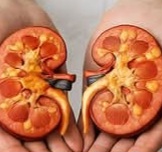Your kidneys work tirelessly to keep your body balanced, filtering waste and regulating fluids. When they’re struggling, the signs can be subtle but serious, affecting your energy, comfort, and overall health. Recognizing these signals early can make a big difference in protecting your kidney health and preventing complications. In this article, we’ll explore 10 key signs that your kidneys may need extra care, backed by trusted health insights, and share practical steps to support them. Let’s dive in and learn how to listen to your body!
Why Kidney Health MattersKidneys are powerhouse organs, quietly performing critical tasks like filtering blood, balancing electrolytes, and producing hormones that keep your bones strong and blood healthy. According to the National Kidney Foundation, about 37 million Americans live with kidney disease, often without early symptoms. Catching issues early can help you take action to slow progression and maintain your quality of life. Paying attention to your body’s signals is the first step toward supporting these vital organs.
10 Signs Your Kidneys May Need HelpYour body often sends clues when something’s off with your kidneys. Here are 10 signs to watch for, based on insights from trusted sources like the Mayo Clinic and CDC.
1. Changes in Urination PatternsYour urine can reveal a lot about kidney function. If you notice frequent urination, especially at night, or a reduced output despite drinking enough water, it could point to kidney issues. Other red flags include foamy urine, a strong odor, or difficulty urinating. Research suggests these changes may indicate the kidneys are struggling to filter properly.2. Swelling in Hands, Feet, or FaceKidneys help regulate fluid balance. When they’re not working well, excess fluid can build up, causing swelling (edema) in your hands, ankles, feet, or even around your eyes. The National Kidney Foundation notes that persistent swelling, especially if it’s sudden, warrants a doctor’s visit.
3. Fatigue and Low EnergyFeeling unusually tired or weak? Kidneys produce a hormone called erythropoietin, which helps make red blood cells to carry oxygen. If kidney function declines, reduced red blood cells can leave you exhausted. A 2019 study in the American Journal of Kidney Diseases linked fatigue to early kidney dysfunction in many patients.4. Itchy Skin or RashesItchy, dry skin or rashes that don’t improve with moisturizer can signal kidney trouble. When kidneys can’t remove waste effectively, toxins build up in the blood, irritating the skin. The Mayo Clinic highlights persistent itching as a common symptom in advanced kidney disease.
5. Shortness of BreathFluid buildup from poor kidney function can affect your lungs, making it harder to breathe, especially during activity or when lying down. This symptom often pairs with swelling and requires prompt attention, as it may indicate fluid overload, per Harvard Health.6. Metallic Taste or Bad BreathA metallic taste in your mouth or persistent bad breath, even after brushing, can stem from waste buildup in the blood (uremia). This can also make food taste different, reducing appetite. The CDC lists this as a lesser-known but significant kidney warning sign.
7. Pain in Your Lower BackKidney-related pain often feels like a dull ache in the lower back, near where the kidneys sit (just below the ribcage). It may be one-sided or constant and can worsen with infections or kidney stones. If the pain persists, don’t ignore it, advises WebMD.8. High Blood PressureKidneys help regulate blood pressure by managing fluid and hormone levels. If they’re struggling, blood pressure can spike, creating a cycle that further stresses the kidneys. The American Heart Association notes that uncontrolled high blood pressure is both a cause and symptom of kidney issues.9. Nausea or Loss of AppetiteFeeling queasy or uninterested in food? Toxin buildup from impaired kidney function can trigger nausea, vomiting, or a lack of appetite. These symptoms often appear in later stages but can occur earlier, according to the National Institute of Diabetes and Digestive and Kidney Diseases.10. Trouble Concentrating or Brain FogPoor kidney function can reduce oxygen delivery to the brain, leading to difficulty focusing, memory issues, or a foggy feeling. A 2020 study in Nephrology Dialysis Transplantation found cognitive challenges are common in kidney disease patients, even in early stages.What to Do If You Notice These SignsIf you’re experiencing one or more of these symptoms, don’t panic—but don’t ignore them either. Here’s how to take action:Visit Your Doctor: Share your symptoms and ask for a kidney function test, such as a blood test (creatinine levels) or urine analysis.Monitor Your Symptoms: Keep a journal of when symptoms appear, their severity, and any triggers to help your doctor assess the issue.Stay Hydrated: Drinking enough water supports kidney function, but avoid overdoing it if you have swelling or fluid restrictions.Review Medications: Some medications, like NSAIDs, can stress kidneys. Discuss your prescriptions with your doctor.Get Screened: If you have risk factors like diabetes, high blood pressure, or a family history of kidney disease, regular screenings are key.The National Kidney Foundation recommends annual checkups for those at risk to catch issues early.Simple Ways to Support Your Kidney HealthTaking care of your kidneys doesn’t have to be complicated. Here are five evidence-based tips to keep them in top shape:Eat a Balanced Diet: Focus on fruits, vegetables, whole grains, and lean proteins. Limit sodium, processed foods, and red meat, which can strain kidneys, per Harvard Health.Stay Active: Aim for 30 minutes of moderate exercise, like walking or yoga, most days. Physical activity helps control blood pressure and weight, reducing kidney stress.Limit Alcohol and Quit Smoking: Both can harm kidney function over time. The CDC advises moderation (one drink per day for women, two for men) and smoking cessation for better kidney health.Manage Chronic Conditions: Keep diabetes and high blood pressure under control with medication, diet, and regular checkups.Avoid Overusing Painkillers: Frequent use of ibuprofen or naproxen can damage kidneys. Use them sparingly and under medical guidance.Share these tips with a friend who wants to stay proactive about their health!When to Seek Immediate HelpSome kidney symptoms require urgent care. Head to the emergency room or call your doctor right away if you experience:Severe swelling or difficulty breathingIntense back pain with fever or chillsBlood in your urineSudden, severe confusion or dizzinessThese could signal acute kidney injury or infection, which need prompt treatment, according to the Mayo Clinic.Keeping Your Kidneys Happy for LifeYour kidneys are unsung heroes, working around the clock to keep you healthy. By recognizing warning signs early and adopting simple lifestyle habits, you can support their function and avoid complications. Stay curious about your health, listen to your body, and work with your doctor to address any concerns. Have a favorite kidney-friendly recipe or tip? Drop it in the comments below—we’d love to hear from you!Explore more health tips on our site to keep your body thriving!*Disclaimer: This article is for informational purposes only and does not substitute professional medical advice. Consult your doctor before making health changes.







